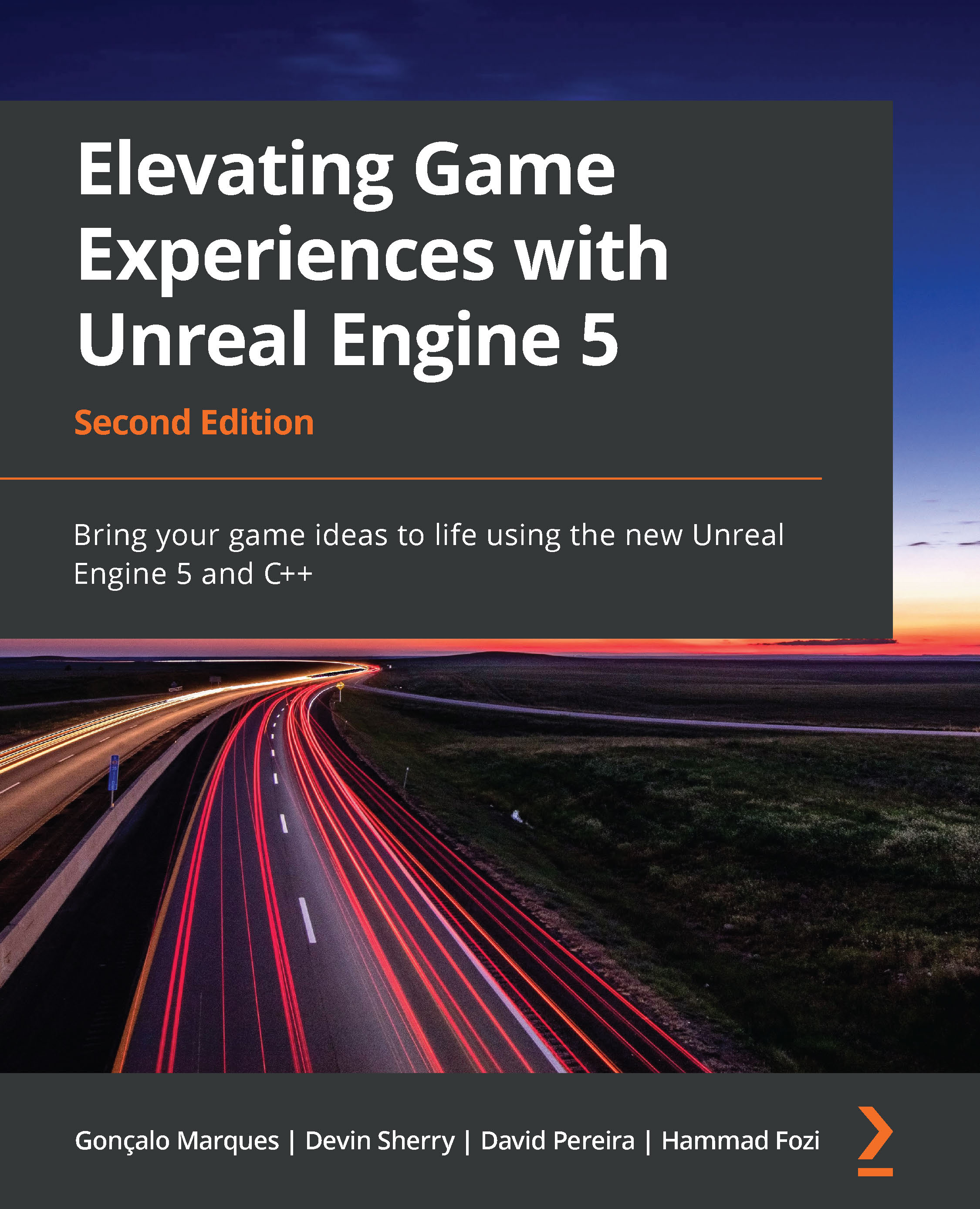Overview of this book
Immerse yourself in the Unreal game projects with this book, written by four highly experienced industry professionals with many years of combined experience with Unreal Engine. Elevating Game Experiences with Unreal Engine 5 will walk you through the latest version of Unreal Engine by helping you get hands-on with the game creation projects.
The book starts with an introduction to the Unreal Editor and key concepts such as actors, blueprints, animations, inheritance, and player input. You'll then move on to the first of three projects, building a dodgeball game, where you'll learn the concepts of line traces, collisions, projectiles, user interface, and sound effects. You’ll also discover how to combine these concepts to showcase your new skills. The second project, a side-scroller game, will help you implement concepts such as animation blending, enemy AI, spawning objects, and collectibles. And finally, you'll cover the key concepts in creating a multiplayer environment as you work on the third project, an FPS game.
By the end of this Unreal Engine book, you'll have a broad understanding of how to use the tools that the game engine provides to start building your own games.



 Free Chapter
Free Chapter
